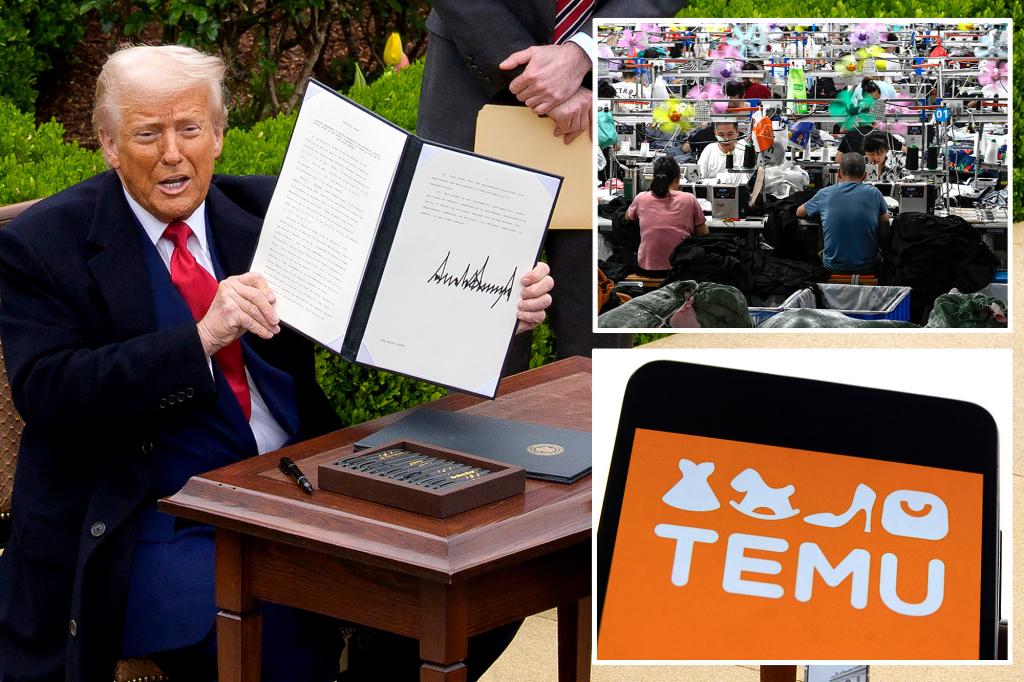Climate Clash: Trump Blocks State Penalties on Oil Giants' Emissions
Companies
2025-04-10 12:22:49Content

In a bold move to support the energy sector, President Trump has signed a groundbreaking executive order designed to protect American energy companies from state-level environmental regulations. The "Protecting American Energy from State Overreach" order aims to shield energy corporations from increasingly stringent state laws that impose financial penalties for greenhouse gas emissions.
This latest executive action is part of the administration's broader strategy to champion domestic energy production and push back against what they view as excessive environmental restrictions. By creating a protective barrier against state-level fines, the order seeks to preserve the economic interests of energy companies while challenging recent climate-focused regulatory approaches.
The executive order represents a significant step in President Trump's ongoing mission to "unleash American energy" and roll back environmental policies implemented during the previous administration. It signals a continued commitment to supporting traditional energy industries and reducing regulatory barriers that could potentially impact their operational capabilities and financial performance.
Energy industry leaders have largely welcomed the move, viewing it as a crucial intervention that protects their economic interests and prevents what they consider to be overreaching state-level environmental regulations.
Energy Policy Showdown: Trump's Bold Move to Shield Fossil Fuel Industries from State Regulations
In a dramatic display of executive power, the Trump administration has once again positioned itself at the center of a high-stakes energy policy battle, challenging state-level environmental regulations that threaten the traditional fossil fuel industry's operational landscape.Unleashing American Energy: A Controversial Path to Economic Resilience
The Executive Order: Decoding Presidential Intervention
The recently signed executive order, "Protecting American Energy from State Overreach," represents a significant strategic maneuver in the ongoing tension between federal and state environmental policies. By directly intervening to shield energy companies from state-imposed financial penalties related to greenhouse gas emissions, President Trump has signaled a clear commitment to protecting traditional energy sector interests. The legal framework underlying this executive order is complex and multifaceted. It challenges the fundamental principles of state-level environmental regulation, suggesting that individual states should not have the autonomous power to impose financial sanctions on energy corporations based on their carbon emissions. This approach fundamentally reframes the conversation about environmental accountability and economic development.Economic Implications and Industry Dynamics
The executive order's potential economic ramifications are profound and far-reaching. By creating a protective legal barrier against state-level environmental fines, the Trump administration aims to provide energy companies with greater operational stability and reduced financial risk. This strategy could potentially stimulate increased investment in fossil fuel infrastructure and exploration. Energy sector analysts suggest that this move could have significant downstream effects on job markets, investment strategies, and long-term industrial competitiveness. The protection offered by the federal government might incentivize energy companies to maintain current operational models rather than rapidly transitioning toward more sustainable technologies.Environmental Policy and Political Landscape
The executive order represents a stark contrast to previous environmental policy approaches, effectively challenging the momentum of state-driven climate action initiatives. By centralizing regulatory power at the federal level, the Trump administration is attempting to create a more uniform and industry-friendly regulatory environment. Critics argue that this approach undermines local and state-level efforts to combat climate change, potentially sacrificing long-term environmental sustainability for short-term economic gains. Proponents, however, view it as a necessary intervention to protect American energy independence and industrial competitiveness.Legal and Constitutional Considerations
The executive order raises complex legal questions about the balance of power between federal and state governments. Constitutional experts are likely to scrutinize the potential challenges to state regulatory autonomy, anticipating potential legal battles that could ultimately be resolved in higher courts. The legal strategy employed suggests a deliberate attempt to create a comprehensive federal framework that limits state-level environmental regulatory powers, potentially setting significant precedents for future energy policy discussions.Global Context and International Perspectives
On the international stage, this executive order could be interpreted as a continuation of the Trump administration's skeptical approach to global climate agreements. By prioritizing domestic energy industry interests, the United States signals a distinct departure from multilateral environmental commitments. International observers and climate policy experts are likely to view this development as a potential setback in global efforts to reduce carbon emissions and transition toward more sustainable energy models.RELATED NEWS
Companies

Dividend Boost: Greenbrier Companies Rewards Investors with Fatter Payout
2025-04-08 10:34:06
Companies

Fast Food Royalty: In-N-Out Burger Crowned as Top Employer, Leaving Corporate Giants in the Dust
2025-02-18 21:42:56
Companies

Tech Giants Clash: Global Brands Challenge India's E-Waste Regulations
2025-04-11 05:39:00





